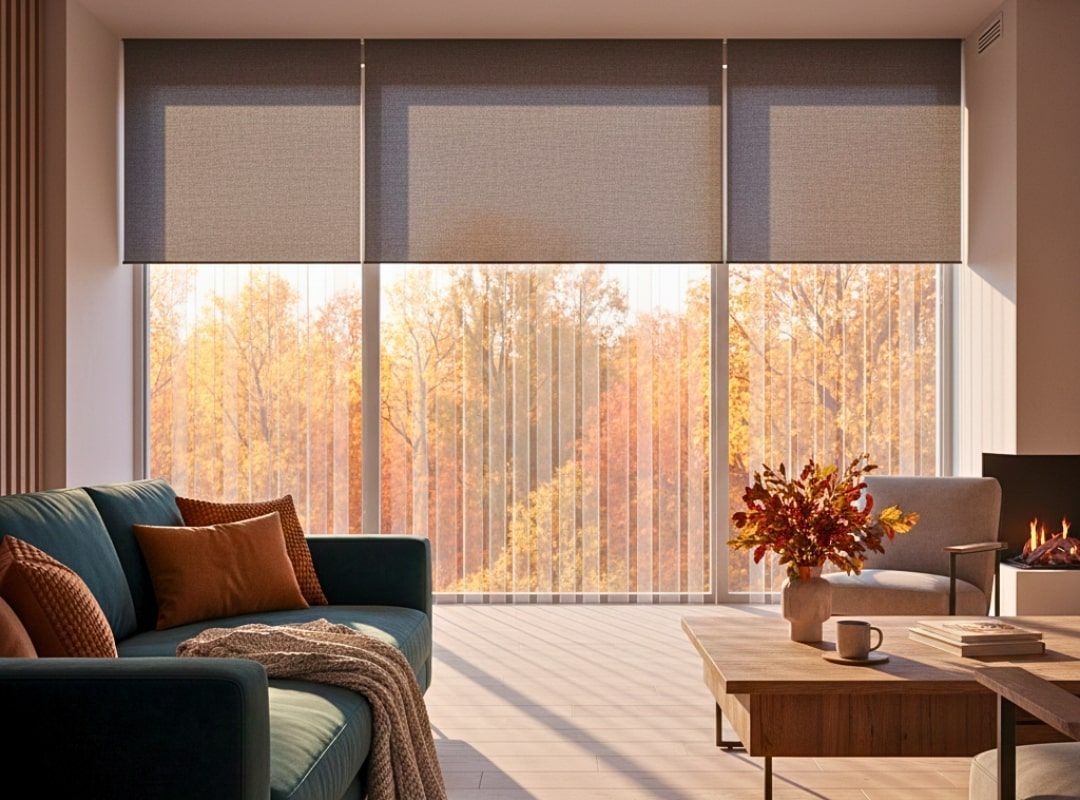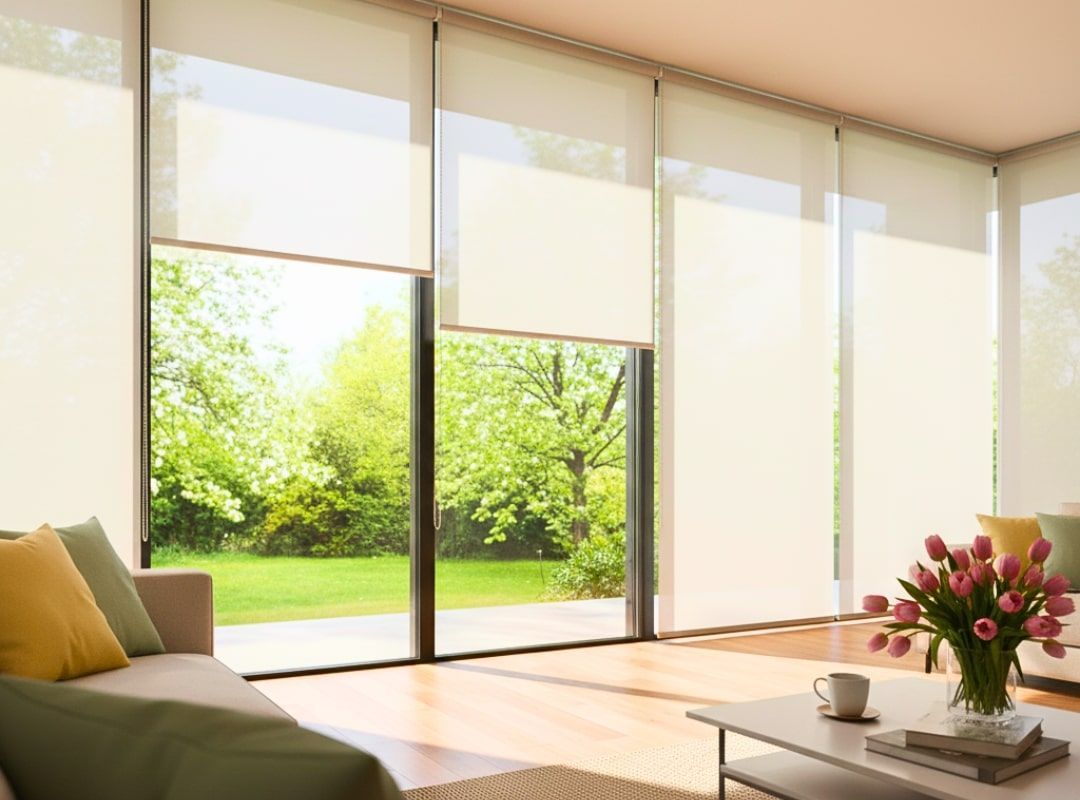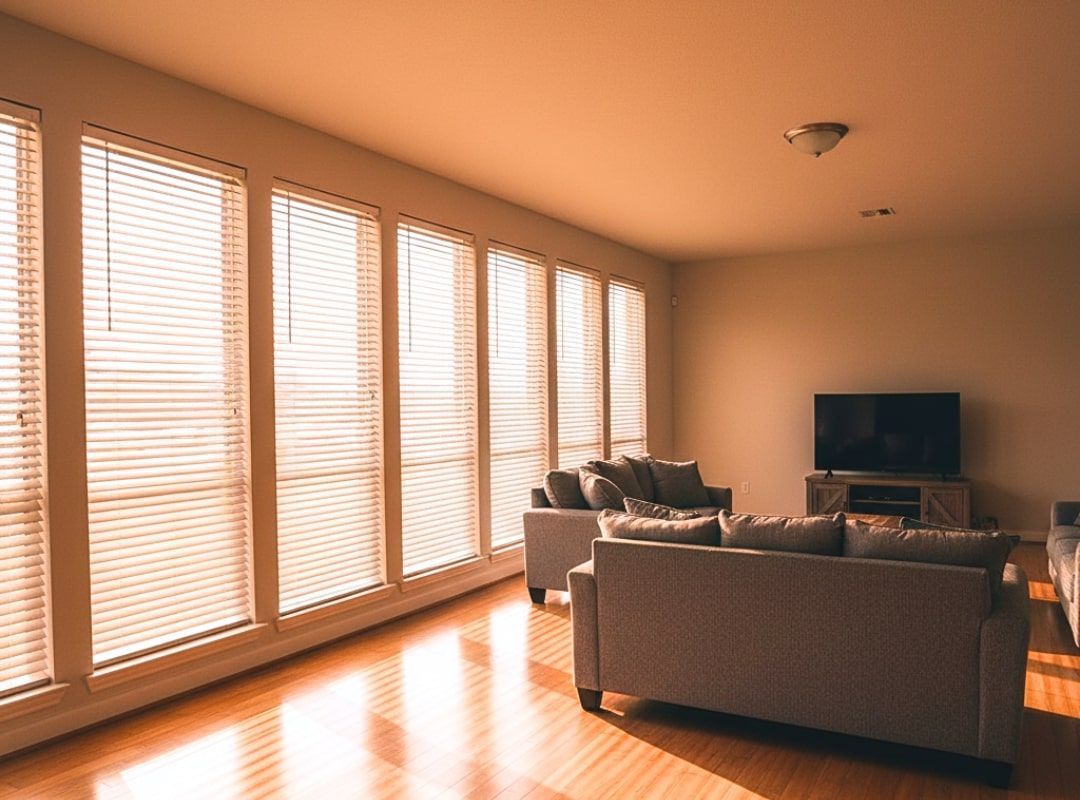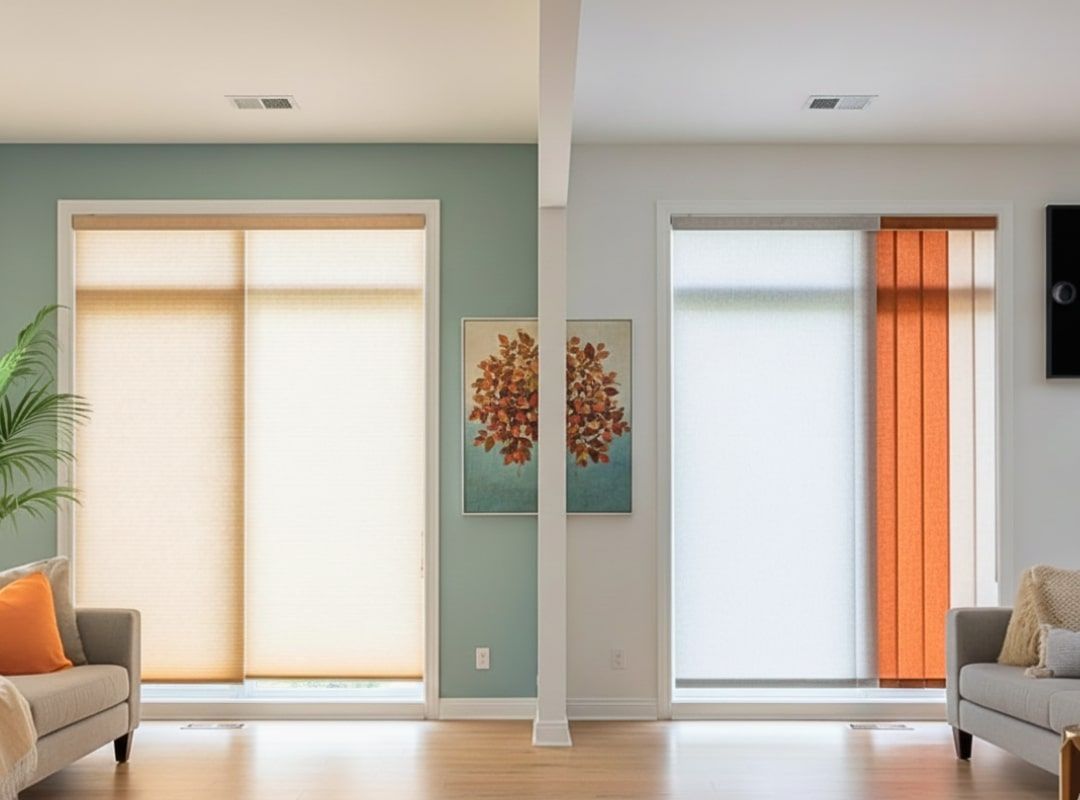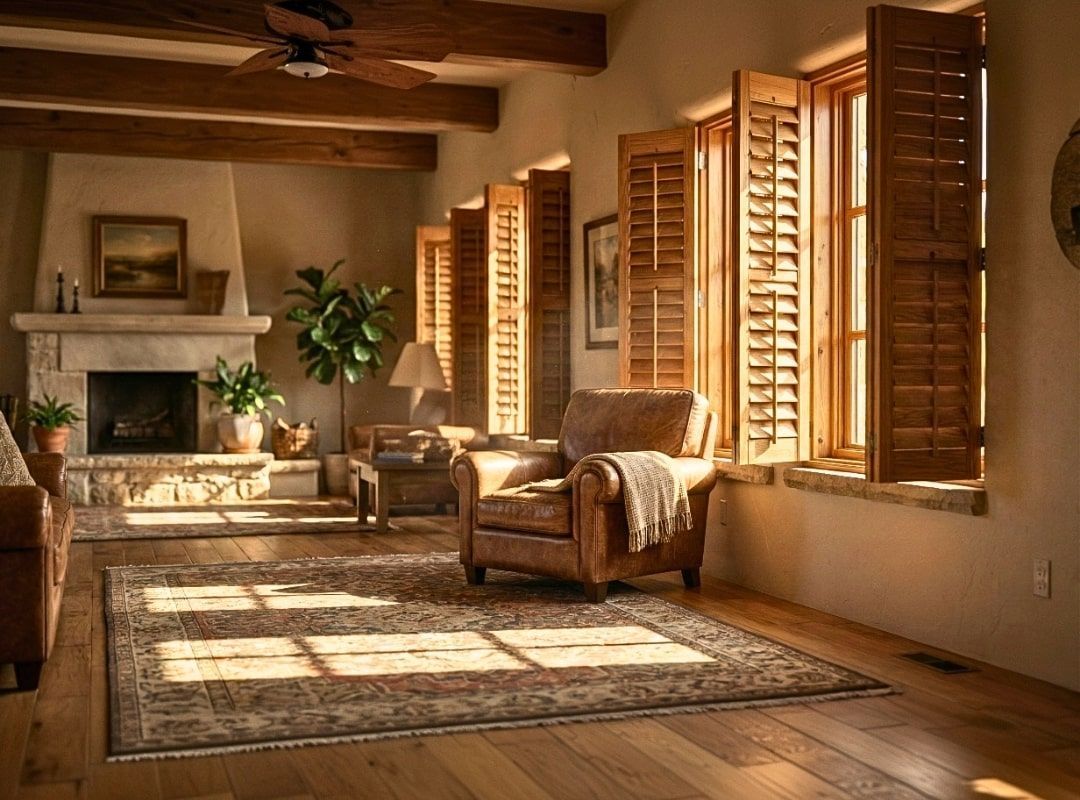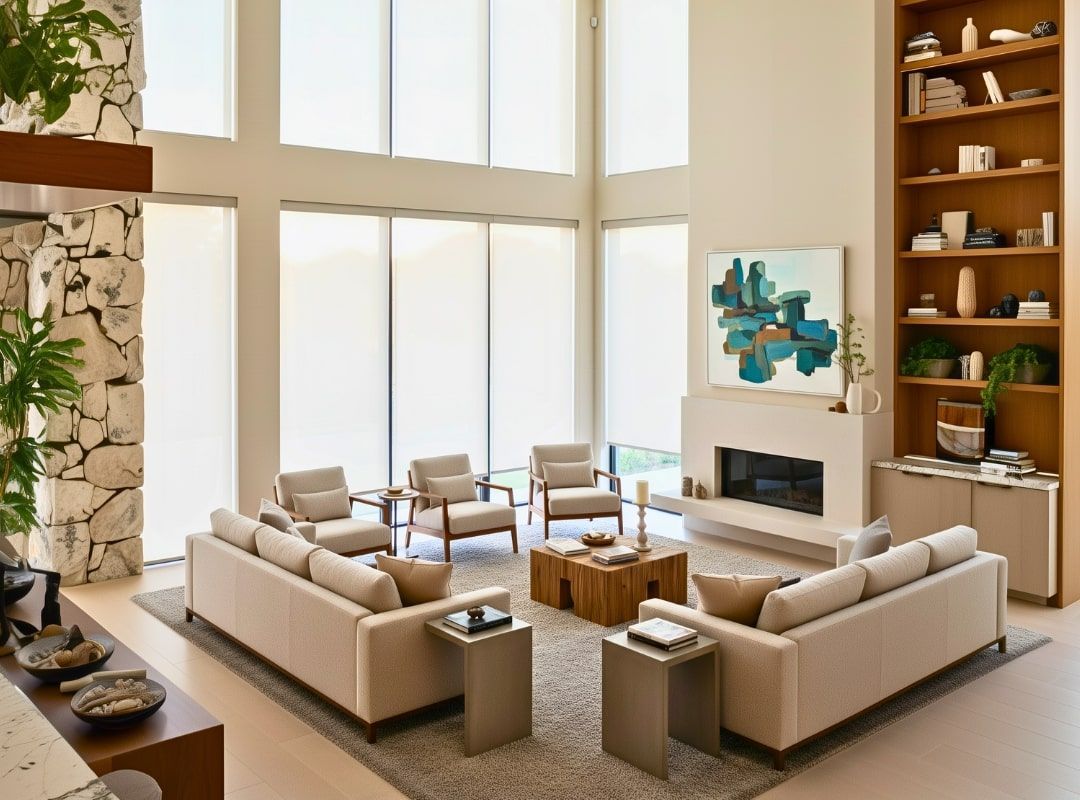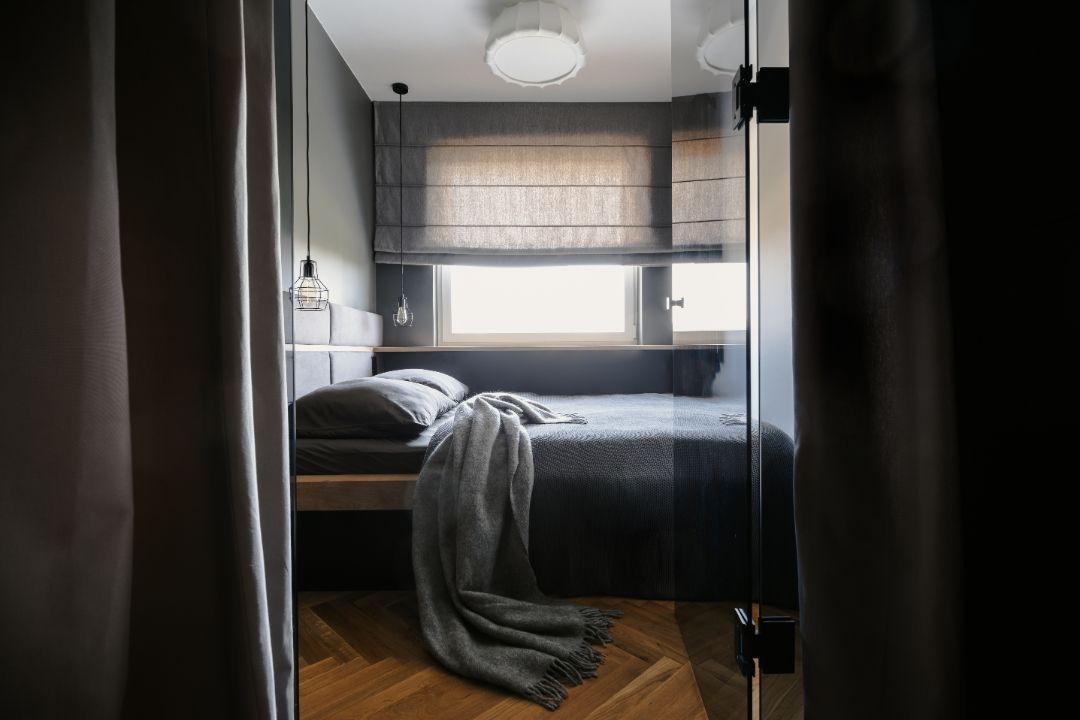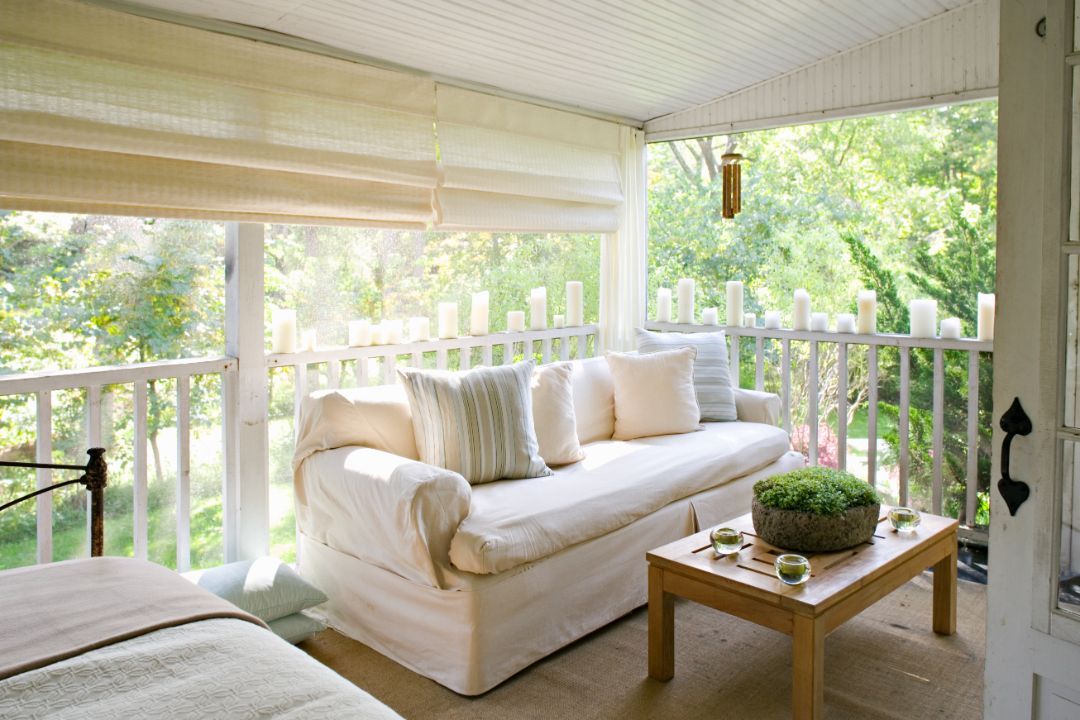What Are Venetian Blinds? Is It Worth Buying
TLDR:
Venetian blinds are
window coverings made of horizontal slats that tilt to control light and privacy. They are worth buying if you want flexible light control, durability, and style options that fit a wide range of budgets, though they need regular cleaning and the right material choice for humid areas.
What Are Venetian Blinds
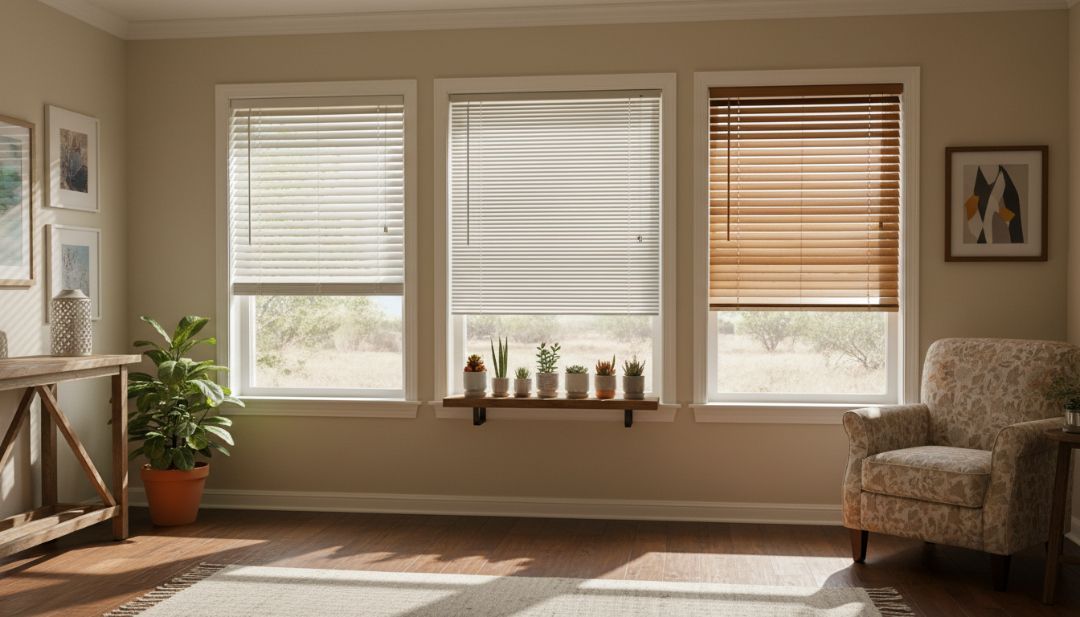
Venetian blinds use horizontal slats connected by cords or cloth tape. The slats tilt to adjust light and raise fully when you want an open window. They have been around for centuries and remain one of the most popular window treatments because of their simple design and high functionality.
Origin and Design Basics
Venetian blinds are named after their European introduction in Venice during the 18th century. Their design has barely changed because it works so well. You get slats that tilt for precision light control and cords that let you raise or lower them.
Common Materials Used
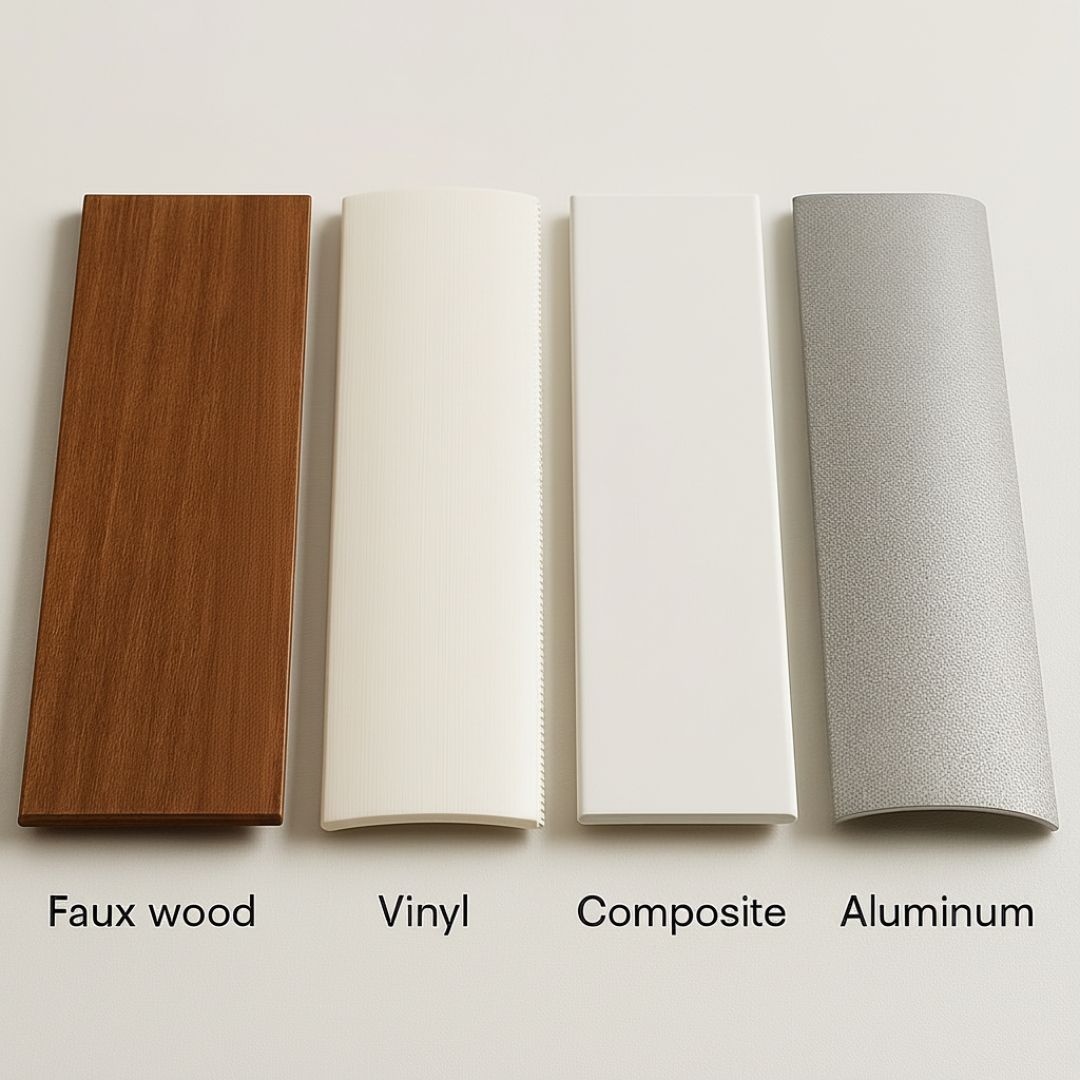
- Wood: Warm and natural, works best in living rooms or offices, but sensitive to humidity.
- Aluminum: Lightweight, moisture-resistant, and versatile, great for kitchens or bathrooms.
- Faux Wood: Made from PVC or composite, looks like wood but stands up to heat and moisture better.
- PVC/Plastic: Easy to clean and suitable for high-use areas.
Parts of a Venetian Blind
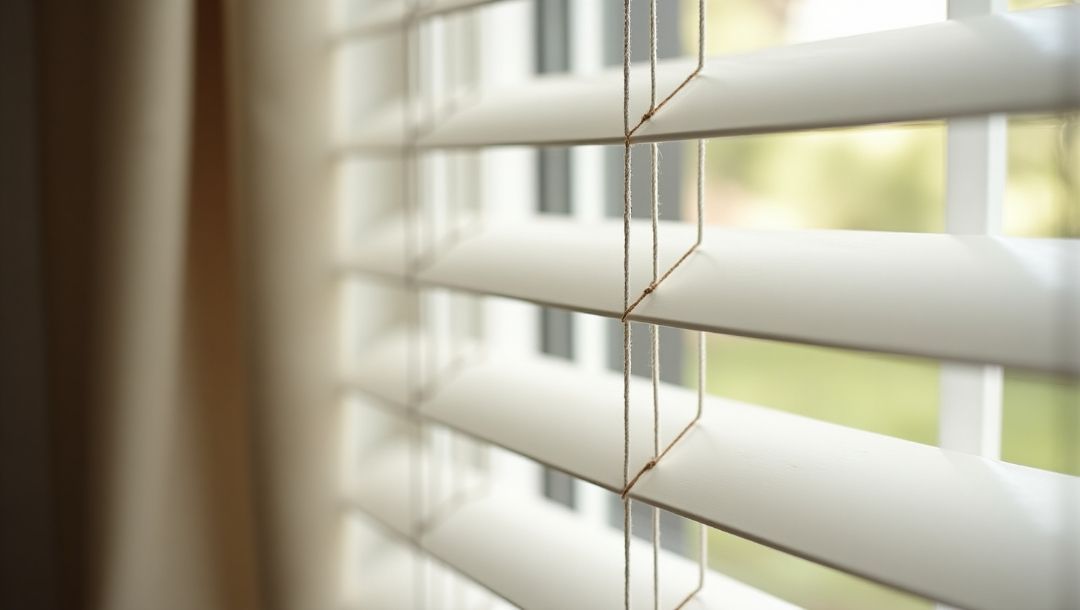
- Slats: The horizontal panels that tilt.
- Ladder Cord or Tape: Holds slats evenly spaced.
- Headrail: Houses the tilt and lift mechanism.
- Bottom Rail: Keeps blinds stable.
- Tilt Mechanism: Lets you control light by angling slats.
Venetian Blinds Pros and Cons
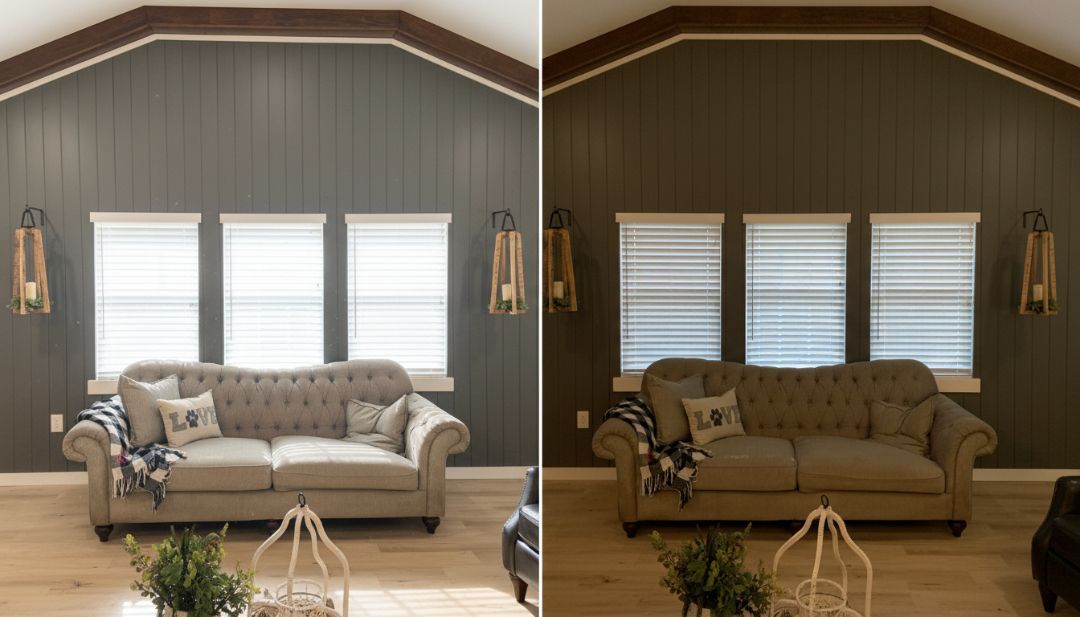
Advantages of Venetian Blinds
- Light Control: Adjust slats for precise brightness in any room.
- Privacy: Angle slats upward or downward for different levels of visibility.
- Style Versatility: Fits modern, traditional, and industrial spaces.
- Durability: Aluminum and faux-wood versions last many years.
- Energy Efficiency: Helps reduce heat gain in summer and insulates during winter.
- Cost-Effective: Generally more budget-friendly compared to shutters or custom drapes.
Disadvantages of Venetian Blinds
- Maintenance: Dust collects on slats, requiring regular cleaning.
- Material Limits: Wood warps in humidity, metal dents, PVC can discolor over time.
- Partial Light Blockage: Some light always seeps through.
- Noise: Slats can rattle with drafts or open windows.
- Size Issues: Wide windows may need multiple blinds, creating gaps.
Venetian Blinds Types and How to Choose
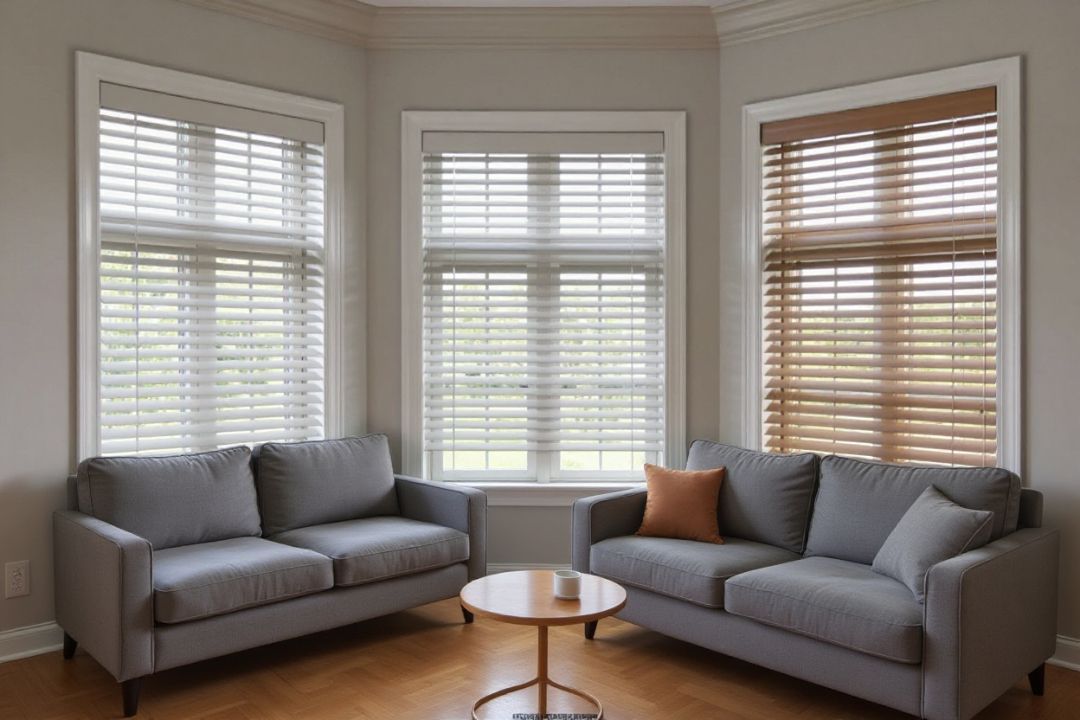
Material Comparison: Wood vs Aluminum vs Faux Wood vs PVC
- Wood: Premium, elegant, but avoid in bathrooms and kitchens.
- Aluminum: Long-lasting, lightweight, and practical.
- Faux Wood: Best balance of durability and style.
- PVC: Affordable choice, better for rentals or commercial spaces.
Slat Width and Color Options
- 1-inch slats: Subtle, modern, good for small windows.
- 2-inch slats: Classic look, better view when tilted open.
- Wider slats: Suited for large windows, create bold style.
Colors range from neutrals like white and beige to bold black or metallics. Choosing lighter shades brightens rooms, while darker tones add drama.
Finish and Custom Features
- Decorative tapes instead of cords add color.
- Motorization for remote or app control.
- Valances to hide hardware.
Venetian Blinds Value and Investment
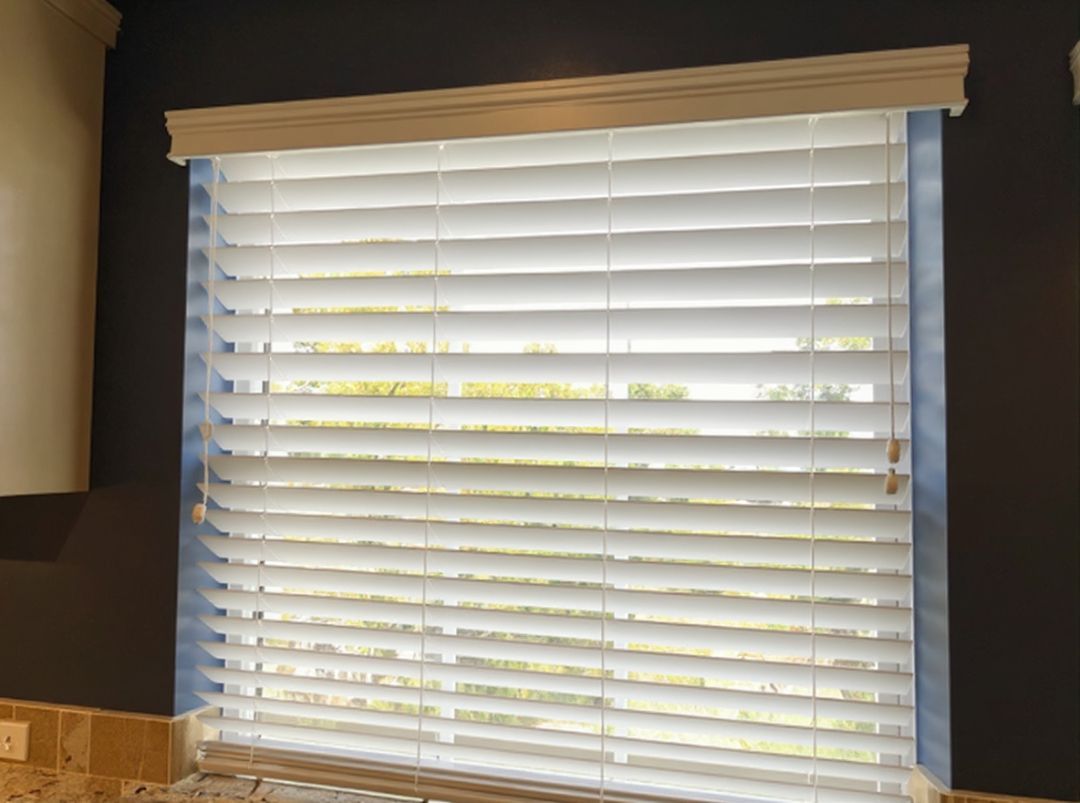
General Cost Considerations
Venetian blinds come in a wide range of budget levels depending on material, size, and customization. Aluminum and PVC tend to be more economical, while wood and custom features like motorization are usually a higher investment.
Long-Term Value
Economical materials may show wear sooner, while faux wood and aluminum provide durability and performance. Wood adds elegance but requires more careful placement and maintenance.
Compared to Other Window Treatments
- Roller Shades: Typically less costly but offer less flexibility for privacy.
- Roman Shades: More stylish but require higher maintenance.
- Shutters: Higher investment, permanent, and bulkier than blinds.
Regional Considerations
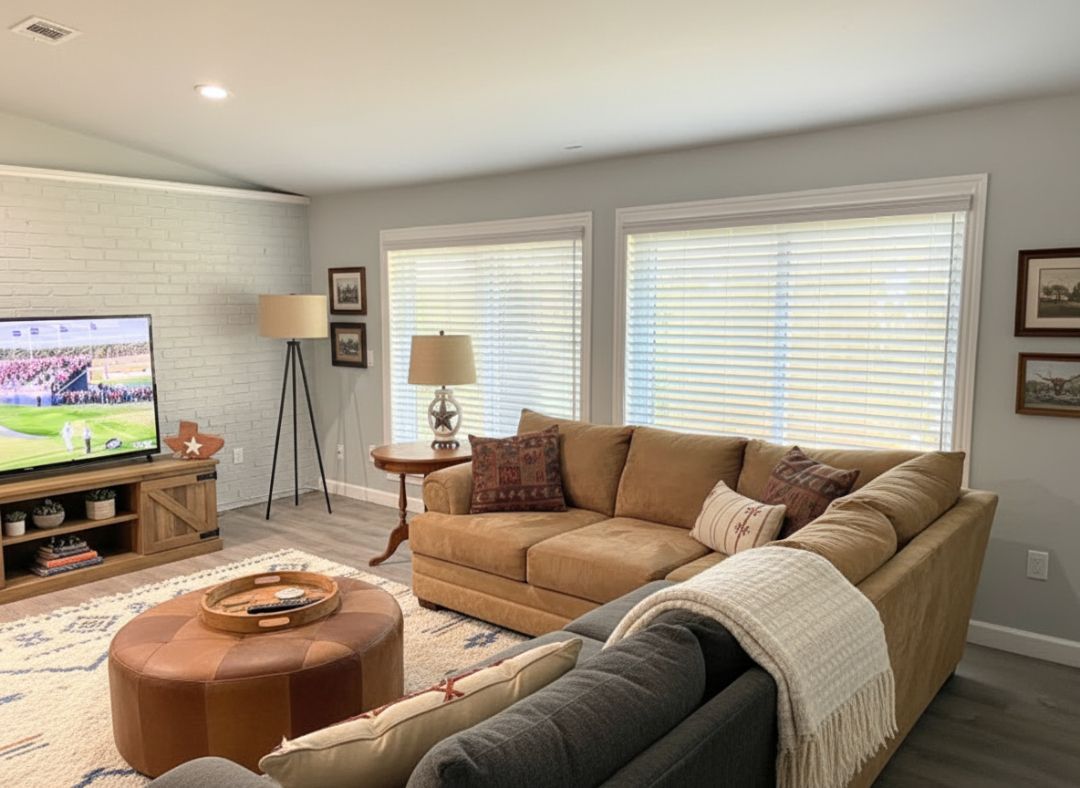
For hot, humid climates like Texas, faux wood and aluminum perform better than
real wood. At Love Is Blinds TX, many homeowners prefer faux wood for durability with the look of real wood.
Maintaining Venetian Blinds for Longevity
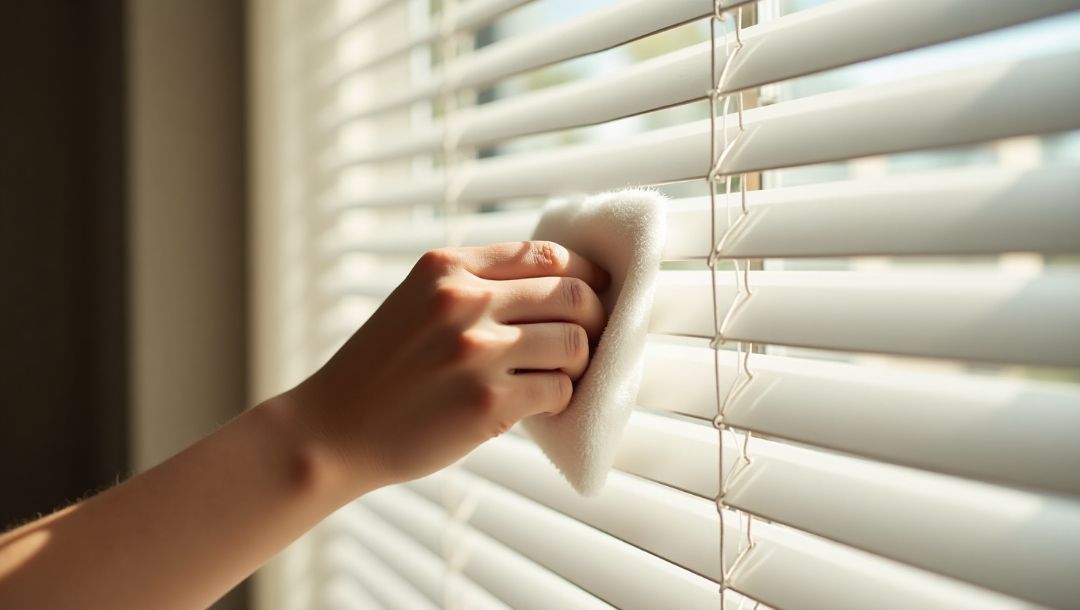
Cleaning Routines
- Dust weekly with microfiber cloth or duster.
- Wipe slats with mild soap and water monthly.
- For aluminum or PVC, deeper clean with hose spray outdoors.
Handling Humidity and Warping
- Keep wood blinds away from high-moisture zones.
- Choose aluminum or PVC for bathrooms and kitchens.
Repair and Replacement Parts
- Slats can be swapped individually.
- Cords can be restrung.
- Mechanisms can be replaced instead of buying new blinds.
Best Rooms for Venetian Blinds
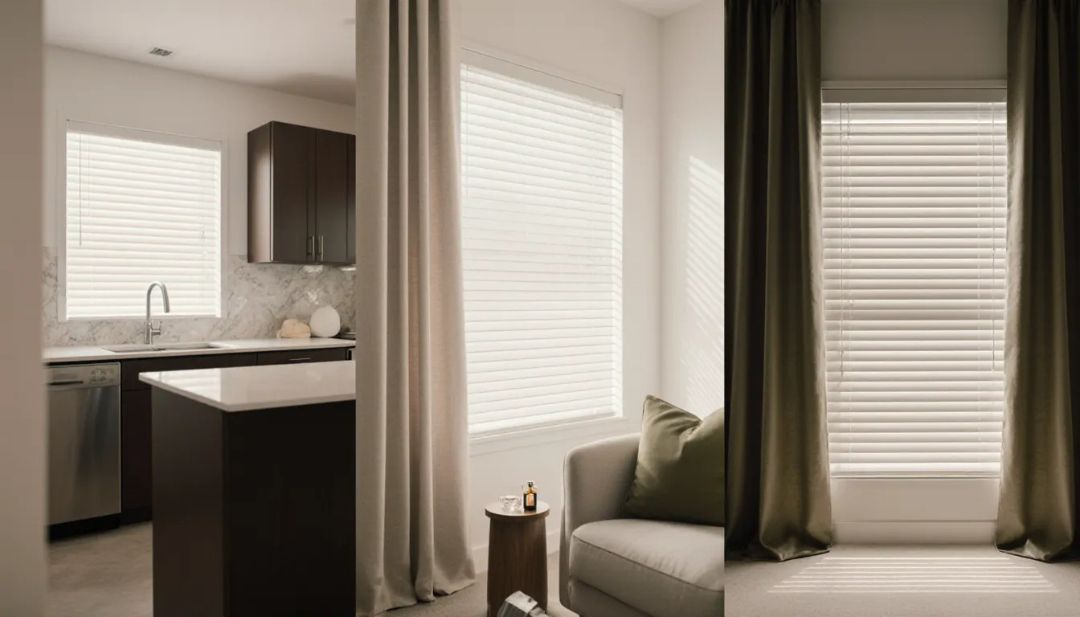
- Bathrooms and Kitchens: Aluminum or faux wood handle moisture without warping.
- Bedrooms: Wood adds warmth, but combine with curtains for blackout needs.
- Living Rooms and Offices: Faux wood balances style with durability. Large slats create a bold centerpiece.
Case Example in Texas Homes:
Love Is Blinds TX installed faux-wood blinds in several Houston kitchens. Clients liked the wood look without worrying about moisture damage.
Venetian Blinds vs Other Window Treatments
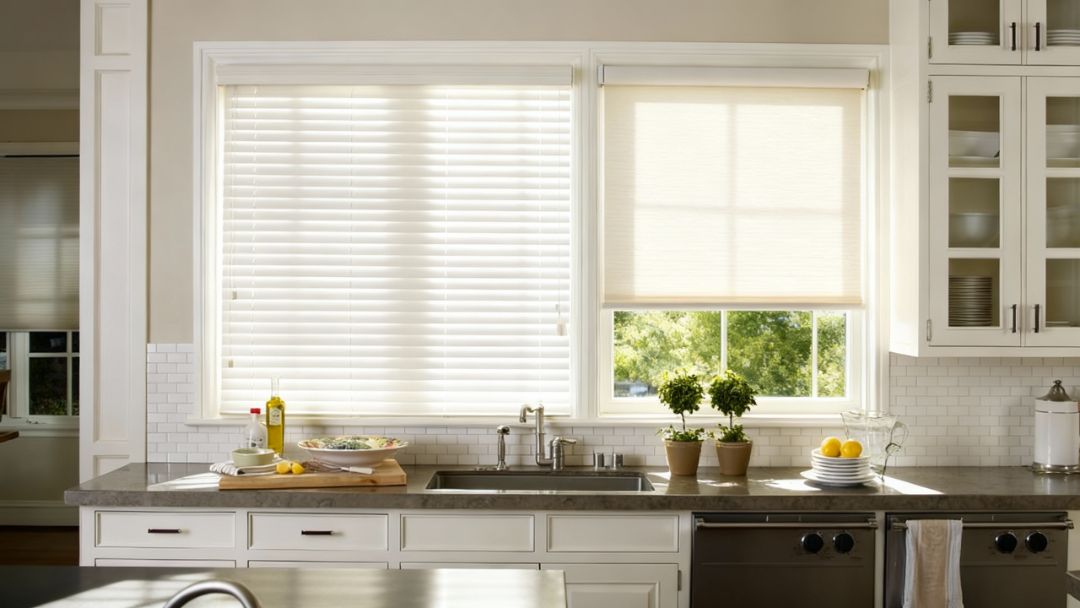
- Venetian vs Roller Shades: Venetians offer better light control and privacy, rollers are sleeker and easier to clean.
- Venetian vs Roman Shades: Venetians are easier to maintain, Romans give a softer look but need more care.
- Venetian vs Cellular Shades: Venetians provide style and view flexibility,
cellular shades are better for insulation.
- Venetian vs Shutters: Venetians are more flexible and budget-friendly, shutters are permanent and a higher investment.
Buying Tips for Venetian Blinds
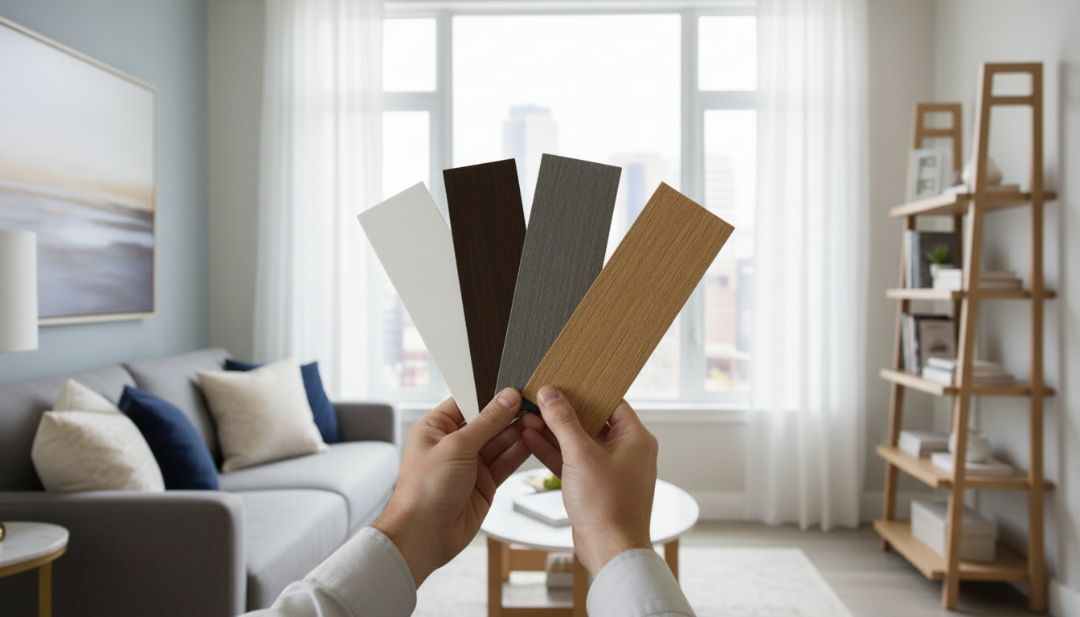
Questions to Ask Suppliers
- What material works best for my room conditions?
- How long is the warranty?
- Are replacement parts available?
Safety Features
- Cordless or motorized options for child and pet safety.
Customization Options
- Ask about finishes, slat sizes, and decorative tapes.
- Motorization may require a higher investment but improves convenience.
FAQ

